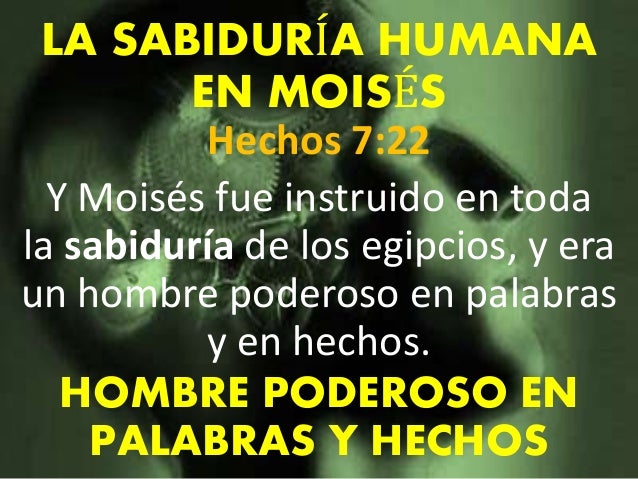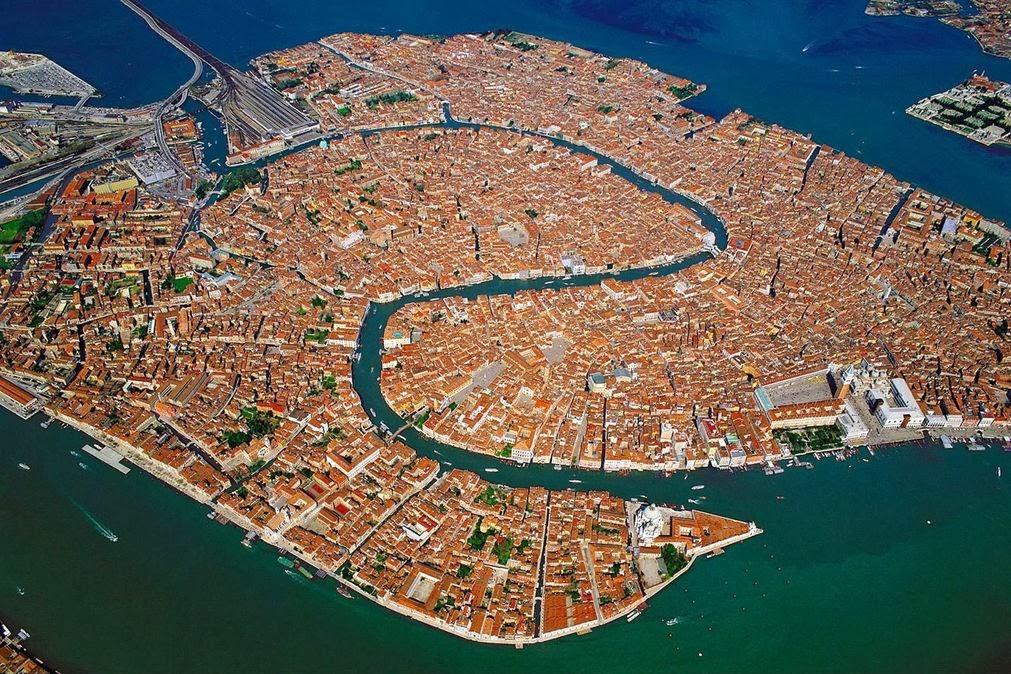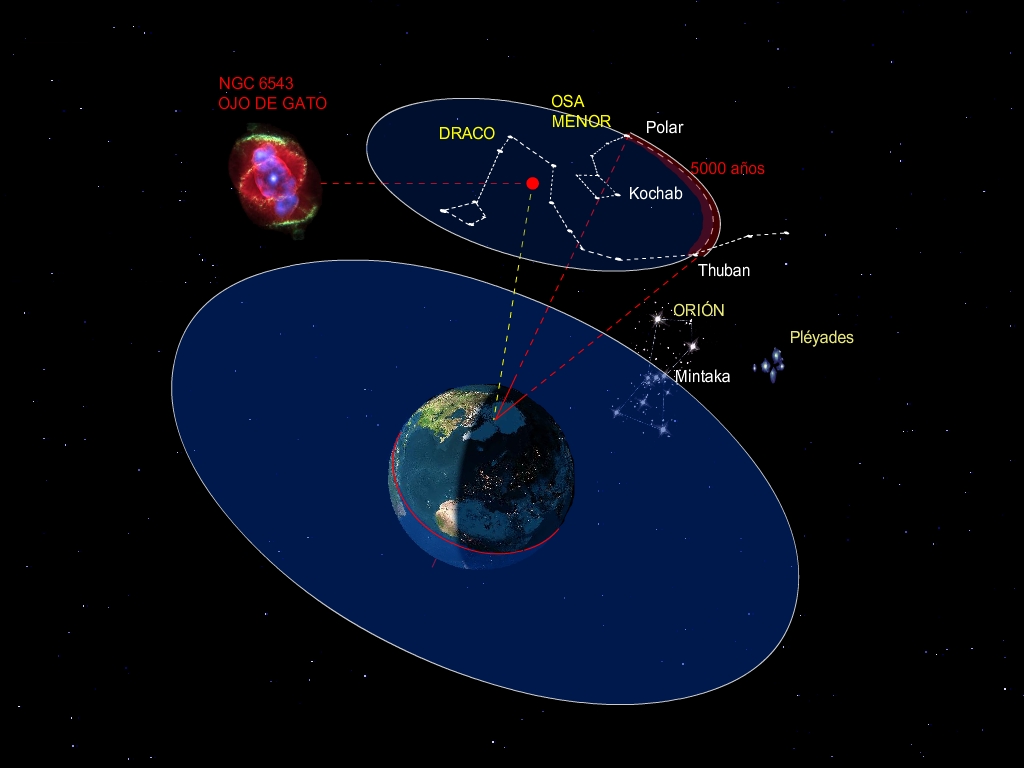|
|
General: PIRAMIDES EN MONTEVECHIA (ITALIA) - REFERENCIA A ORION / ATLANTIDA
إختار ملف آخر للرسائل |
|
جواب |
رسائل 1 من 23 في الفقرة |
|
|
|
|
|
جواب |
رسائل 2 من 23 في الفقرة |
|
|
Pyramids in Italy
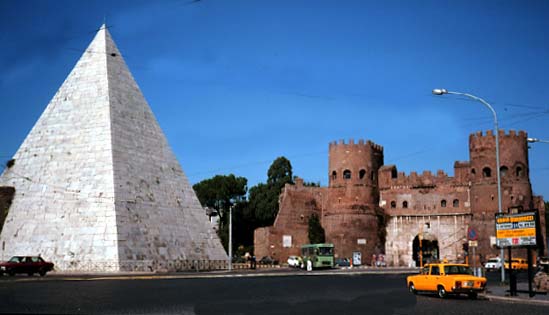
The Pyramid of Cestius (in Italian, Piramide di Caio Cestio or Piramide Cestia) is an Egyptian-style pyramid in Rome, Italy near the Porta San Paolo and the Protestant Cemetery.
The pyramid is a funerary monument built about 12 BC as a tomb for Caius Cestius, a member of one of the four great religious corporations at Rome, the Septemviri epulonum. It is of brick-faced concrete covered with slabs of white marble, 27 meters high and about 22 meters square, standing on a travertine foundation. In the interior is the burial chamber, 5.95 metres long, 4.10 wide and 4.80 high. On the east and west sides, about halfway up, is the inscription recording the names and titles of Cestius, and below, on the east side only, another which relates the circumstances of the erection of the monument (CIL vi.1374).
The peculiar conceit of a pyramid in Rome must be laid to the fact that Rome had conquered Egypt a few years before, in 30 BC, and the ancient culture of the new province became fashionable for a while; at any rate the tomb is unique among ancient Roman monuments, and not until modern funerary architecture did Rome see another pyramid within its walls.
A comparison of their shape reveals that the structural strength of concrete made it possible to build the Roman pyramid at a much sharper angle than those of Egypt.
In the 3rd century the pyramid was included inside the Aurelian Walls, and the Middle Ages, including the author Petrarch, seems to have thought of it, erroneously, as the tomb of either Romulus or Remus, in spite of the inscription.
At that time, it was considered one of the most important monuments of antiquity. It had been conserved 'nearly intact', but was neverhteless overgrown with plants. The inscription 'Caius Cestius' was barely visible. Pier Paolo Vergerio mentioned around 1400 that it was difficult to read because of the vegetation.
In 1660, excavations were undertaken: two statue bases were found outside it dedicated to Cestius, and an opening was dug into the pyramid itself, when it was discovered that the burial chamber was once decorated with frescoes, only the scantest traces of which now remain.
The Falicon pyramid near Nice in France is suspected by some to have been constructed by Roman legionaries from an Egyptian cult.
References and Links
Three Pyramids Discovered In Montevecchia, Italy
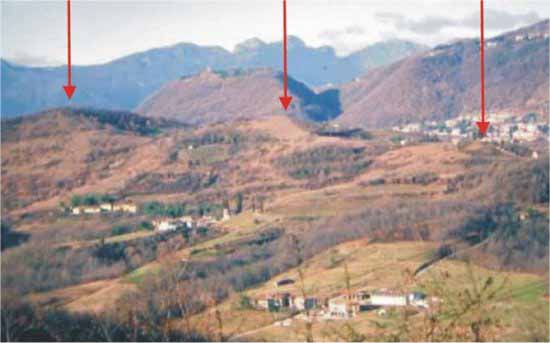
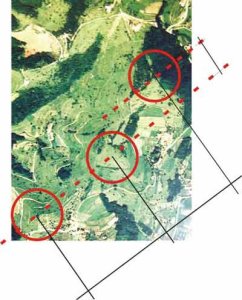
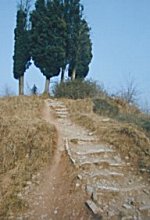
Discovered May 2, 2003, from the air over northern Italy, 40 km from Milan, were three pyramids, with the same alignment as Giza and Orion. They are the first pyramids ever discovered in Italy and the dimensions are quite impressive. The highest pyramid is [500 feet] tall. They are stone buildings, as recent excavations have proved. However, they are now completely covered by ground and vegetation, so that they look like mounds.
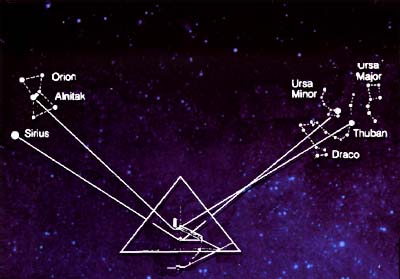
Sirius
Orion
The inclination degree of all the three pyramids is 42/43¡ and there is a perfect alignment with the Orion constellation. Nothing was found nearby which may help to date the structures and in the area there was not any civilization able to build similar structures at the time. The people who lived there were mainly gatherers and hunters.
Reference
ShareThis
ANCIENT ROME
PYRAMID INDEX
SACRED PLACES AND TEACHINGS INDEX
ANCIENT CIVILIZATIONS INDEX
ALPHABETICAL INDEX OF ALL FILES
CRYSTALINKS HOME PAGE
PSYCHIC READING WITH ELLIE
2012 THE ALCHEMY OF TIME
|
|
|
|
MONTEVECCHIA ... research trip Oct.2007
located about 40 km northeast of Milan and about 15 km south of Lecco in Lombardy/Italy there is a small village with 3 pyramid shaped hills. These hills in Montevecchia were discovered in 2003 by the Italian architect Vincenzo DeGregorio.
See links in ITALIAN: http://www.croponline.org/montevecchia.htm http://www.antikitera.net/download%5CPiramidi_Brianzole.pdfhttp://www.duepassinelmistero.com/Pirmontev.htm ...DeGregorio report
If it is true, what Vincenzo DeGregorio could see with his balloon camera, these hills, the highest 150 m, would be gigantic pyramids. Even higher than the Giza pyramids in Egypt (once 146 m). The Czech magazine WM 2003 has published a report about their research in May 2003.

areal foto of the Montevecchia pyramid-hills
In early 2003, the pyramids of Montevecchia (“Old Mountain"), ca. 30 miles from the Italian city of Milan, were discovered through the use of satellite and aerial imagery. These pyramids are now completely covered by ground and vegetation and appear to be natural hills, but the possibility of something more was enough for the Czech WM magazine and their editor in chief Georg Wojnar to visit the area. They arrived on May 8, 2003, in an effort to locate and survey the site. The team soon learned that discovering their location from the ground proved more difficult than imagined, with the team becoming impressed with the driving abilities required to negotiate the roads that lead towards the hills. After two days of failed attempts, they finally succeeded in locating the pyramids and carrying out an initial survey.
The team’s conclusion appeared in the June 2003 issue of WM. They had come to the conclusion that the first pyramid was estimated to have a base of 100 metres, with a height of 50 metres. In total, three potential pyramids were surveyed, with one pyramid showing clear signs of stones worked into the structure, close to the surface. A platform with an oblong superstructure with a size of 18 by 9 metres was also discovered. All three structures had an inclination of 42/43 degrees. The sides of all pyramids were aligned and were offset from the cardinal points by approximately 7 to 12 degrees northeast. The team wondered whether this was an error in design or a sign of something more intriguing. From the initial aerial surveys, there was speculation that their layout compared to the pyramids of the Gizeh plateau – and thus to the Belt of Orion. The Czech team stated that their on-site research had showed that the pyramids actually aligned with the passing of Orion at the sunrise of the summer solstice. The Czech team felt that the site should be known as “the Italian Gizeh".
Gabriela Lukacs and fellow researcher Nenad Djurdjevic from Bergamo made a research trip to Montevecchia in October 2007.
We presented our investigations on ICBP-conference in Sarajevo Aug.2008
The 3 pyramidal hills are best seen from the little town of Montevecchia. The old town itself is located on a hill with the Carmelite monastery situated on the tallest hill top. And this was a big surprise to us: this area is a huge basin with 7 to 9 pyramidal hills surrounding it. The 3 hills detected and determined as pyramids by V.DeGregorio can easily be seen and are not the only ones in the area!
Our research brought up 13 surprises and a new approach to the "Montevecchia" hills:
- 7-9 pyramid shaped and terraced hills can be seen in the area of Montevecchia.
- Not only are their pyramidal shapes clearly visible, but also the steps, edges and flattened tops.
- 2 hills are parallel and their sides are aligned with a slight offset of 7-12° to the cardinal directions. 1 hill slightly different in position and alignment.
- The stepped ascent paths to the tops follow the edges on the SE+SW sides.
- All 3 hills are connected with each other by a path N-S, respectively S-N.
- P1+P2 have grass covered stepped terraces, P3 is completely hidden under wood and shrubs.
- P1 has a flat top with now 11 cypress trees + 1 altar stone (in place of 1 cut tree).
- P2 has an elliptical plateau 9x18m built from huge stone blocks, shaped and cut to fit in place. Both centres of the ellipse can still be seen on the plateau.
- From all 3 hill tops the eastern sunrise can be observed behind the alpine mountains, making them an excellent observation platform. There is a fallen menhir on P2 platform.
- All terraces are built from dry stone walls, height approx.50 cm. The dry stone walls are made of rectangular shaped stones with flat sides and right angles, no field stones.
- The wine-terraces on the smaller slopes in the valley follow the topography, the steps on the pyramidal hills are completely straight with balanced level.
- Hill inclination of 42-43° and possible height of manmade structure 50m, maybe even 150m.
- Gorgeous view round Curone valley. On a clear day you can see Milan.
READ OUR DETAILED INVESTIGATIONS OF P1-P2-P3

distances P1-2=515 m, P2-3=565 m

View of P 1-2-3 seen from Montevecchia village

P1-2-3 sketch overlay

vineyard in Curone valley on the slopes of the pyramidal hills
Notice the difference between the vineyard with terraces following the topography of the terrain and the perfectly level terraces of the pyramidal hills as can be seen on P1,P2,P3 photos
Coordinates of 6 possible pyramids and elevation of the hills
| P1 |
45°43'41/9°22'18 |
416 m |
|
| P2 |
45°43'26/9°22'26 |
370 m |
|
| P3 |
45°43'51/9°21'51 |
460 m |
|
| P4 |
45°42'24'/9°22'19 |
438 m (hill covered by vineyards) |
|
| P5 |
45°42'19/9°22'37 |
425 m (Carmelite monastery hill) |
|
| P6 |
45°42'20/9°22'43 |
392 m (hill with private building) |
|
|
|
|
|
|
جواب |
رسائل 3 من 23 في الفقرة |
|
La massoneria a Venezia e la Chiesa di Santa Maria Maddalena
Venezia, da sempre città magica e misteriosa, fu sede già nel XVIII secolo di importante loggia massonica di cui faceva parte anche il famoso avventuriero Giacomo Casanova.
Questa loggia massonica era così ricca e potente da riuscire a far costruire un’intera chiesa seguendo le dottrine della massoneria: la chiesa di Santa Maria Maddalena a Cannaregio.
Alcuni esponenti della famiglia Baffo, membri della Massoneria a Venezia, affidarono il progetto di questa chiesa ‘massonica’ all’architetto Tommaso Temanza, un confratello, che progettò un edificio perfettamente circolare in stile neoclassico e fece incidere sull’architrave della porta un simbolo della Massoneria, l’occhio inscritto in un cerchio e in una piramide, e l’iscrizione ‘SAPIENTIA EDIFICAVIT SIBI DOMUM’, un riferimento al culto per la divina sapienza, fondamento della massoneria.
Lo stesso Temanza è seppellito dentro la chiesa e la sua pietra tombale è adornata da una riga e un compasso, il simbolo più importante della Massoneria, perché i confratelli si definivano ‘muratori’.
Non è un caso poi che questa chiesa ‘massonica’ sia dedicata proprio a Maria Maddalena, personaggio enigmatico e spesso rifiutato dalla chiesa ufficiale, ma molto amato invece dalla Massoneria che vedeva in lei un simbolo di sapienza e della lotta contro l’oscurantismo della chiesa.
Se siete interessati ai luoghi più insoliti e meno noti di Venezia, contattateci al più presto! Assieme a Francesca, l’autrice di questa popolare sezione, creeremo per voi un indimenticabile itinerario personalizzato di Venezia.
NUMERO PI=22/7=3.14 =DIA DE MARIA LA MAGDALENA EN LA IGLESIA CATOLICA, EN LA IGLESIA ORTODOXA Y EN LA IGLESIA ANGLICANA
|
|
|
|
جواب |
رسائل 4 من 23 في الفقرة |
|
PIRAMIDE IN CAIAZZO IN ASSE CON LA CINTURA DI ORIONE – LA STELLA SIRIO
PIRAMIDE IN CAIAZZO IN ASSE CON LA CINTURA DI ORIONE – LA STELLA SIRIO DEL CANE MAGGIORE
Non supponevo per niente che quella che poteva essere una piramide nella pianura di Caiazzo vicino ad un’ansa del fiume Volturno potesse svolgere una funzione importantissima nella concezione canonica dell’allineamento delle piramidi in funzione delle costellazioni.
Tutte quelle piramidi che noi conosciamo sono allineate lungo un asse che forma la Cintura di Orione,qui e’ spuntato qualcosa di nuovo e rivoluzionario nel concetto degli allineamenti,io sono basito e stupefatto,poiche’ man mano che mi addentro nella ricerca mi imbatto in qualcosa di nuovo e stupefacente e che rende la mia ricerca interessante giorno dopo giorno.
Non so che dirvi,so solo che in questi giorni mi catapultero’ in indagini apprfofondite e sistematiche affinche’ io possa avere la certezza matematica che cio’ che ho supposto sia una realta’.
Per il momento pubblico quello che ne e’ venuto fuori e che lascia supporre che il tutto sia in linea con un ragionamento logico.
Detto post verra’ ampliato e sviscerato nella mia prossima pubblicazione della ricerca sulla Piramide di Sant’Agata de’ Goti in fase di seconda edizione ampliata,riveduta e corretta.
A presto
Leonardo Benedetto Romano – Ricercatore Indipendente
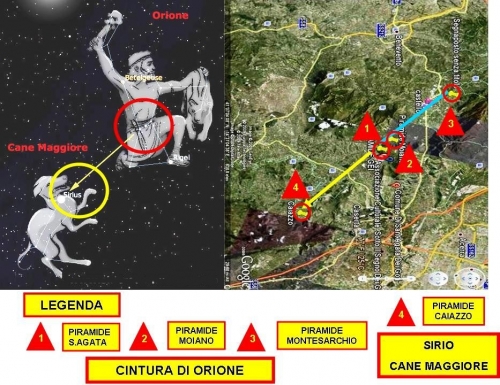
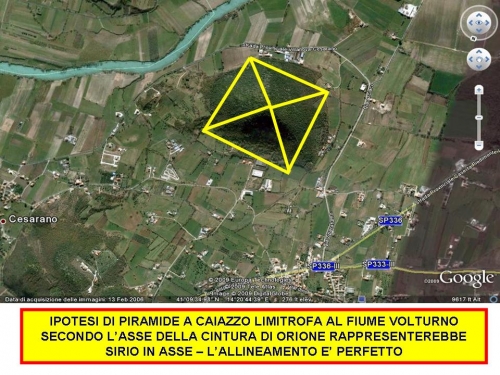 |
|
|
|
جواب |
رسائل 5 من 23 في الفقرة |
|
http://piramidiinitalia.myblog.it/2009/07/25/piramide-in-caiazzo-in-asse-con-la-cintura-di-orione-la-stel/ |
|
|
|
جواب |
رسائل 6 من 23 في الفقرة |
|
|
|
|
جواب |
رسائل 7 من 23 في الفقرة |
|
|
|
|
جواب |
رسائل 8 من 23 في الفقرة |
|
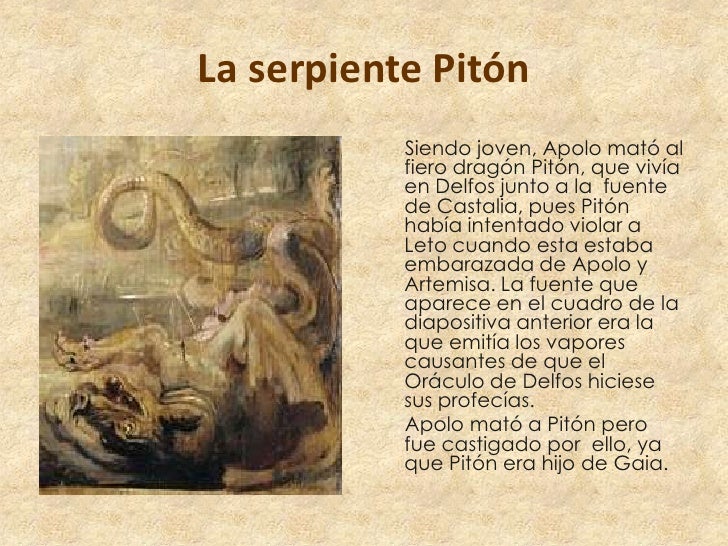
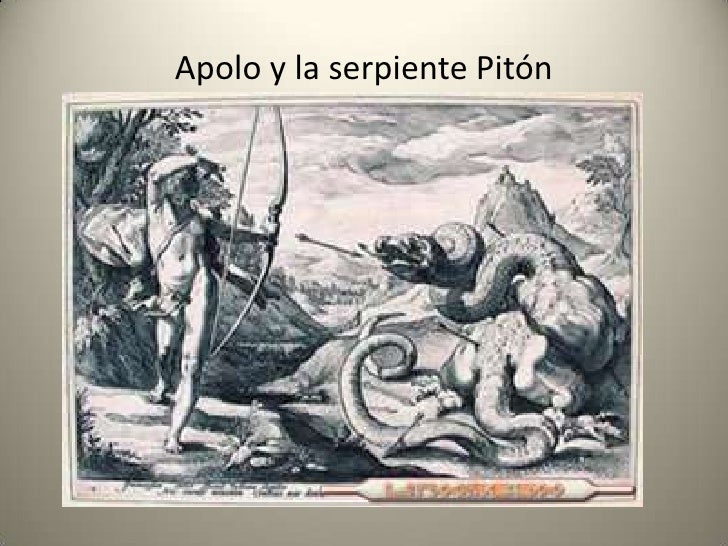
|
|
NOTEN EL NEXO DE DAN, CON LA SERPIENTE (VENECIA) Y EL CABALLO (PLAZA SAN MARCOS)
7. Génesis 49:17 Será Dan SERPIENTE junto al camino, Víbora junto a la senda, Que muerde los talones del caballo, Y hace caer hacia atrás al jinete.
VENECIA=PLAZA SAN MARCOS
VENECIA (ITALIA)
¿PORQUE LA BANDERA MEXICANA ES SIMILAR A LA ITALIANA EN EL MARCO A UNA SERPIENTE?
SABIDURIA=SABADO=LETRA S=$
|
|
|
|
|
|
| Reply |
Message 10 of 10 on the subject |
|
|
|
|
|
|
|
|
|
|
| Reply |
Message 8 of 11 on the subject |
|
|
|
|
| Reply |
Message 9 of 11 on the subject |
|
|
|
|
| Reply |
Message 10 of 11 on the subject |
|
|
|
|
| Reply |
Message 11 of 11 on the subject |
|
|
|
|
|
|
|
|
|
|
 أول
أول
 سابق
2 a 8 de 23
لاحق
سابق
2 a 8 de 23
لاحق آخر
آخر
|
|
| |
|
|
©2025 - Gabitos - كل الحقوق محفوظة | |
|
|





















